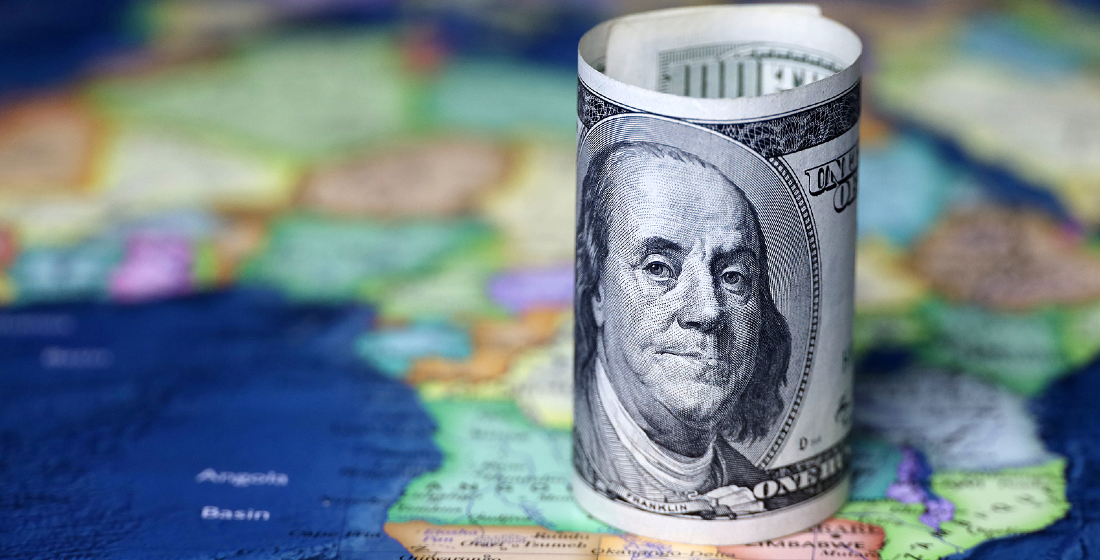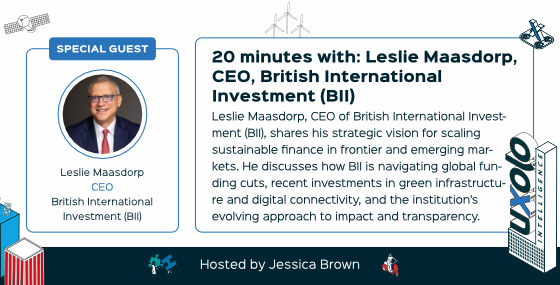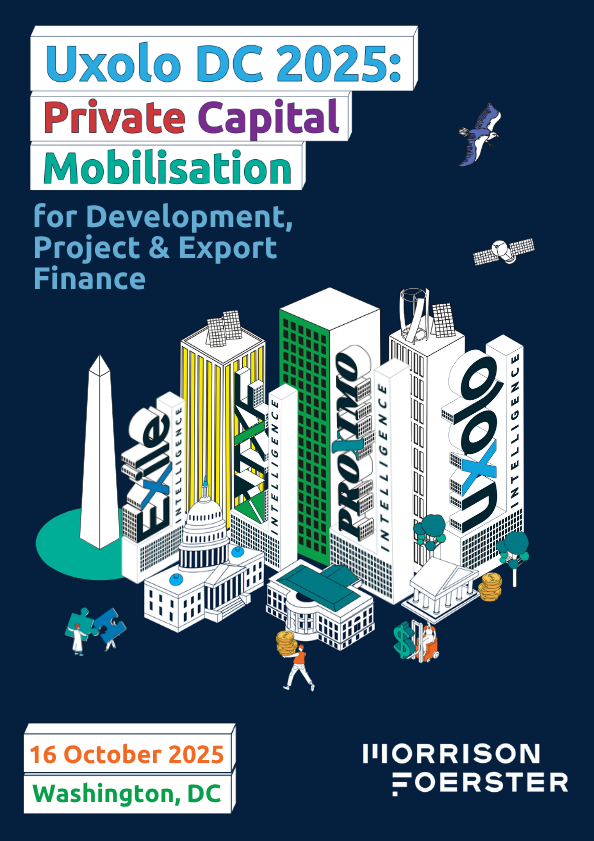How impact investors can finance social justice
Uxolo talks to Renee Morgan, social justice strategist at San Francisco-based impact investor Adasina Social Capital's, about how the financial markets can be used to accelerate the social justice agenda.

Adasina Social Capital, a US investment and financial activism firm that serves as a bridge between financial markets and social justice movements, recently saw its pioneering Adasina Social Justice All Cap Global ETF cross the $50 million threshold after six months of trading. Adasina’s ETF is the first to follow a data-driven set of investment standards – known as the Adasina Social Justice Investment Criteria – created by working closely with social justice movements to identify the issues most directly affecting their communities. The fund places a particular focus on the advancement of racial, gender, economic, and climate justice.
The ETF is one part of a broad investment strategy that aims to mobilise investors through campaigns and education around the specific social justice issues Adasina works to advance. The approach aims to create incentives for companies and governments to change their harmful practices and make positive, systemic change for people and the planet. Uxolo caught up with Adasina’s social justice strategist, Renee Morgan, to find out more.
Uxolo: How does the social justice agenda differ from that of the sustainable development goals?
Renee Morgan: I think the Sustainable Development Goals are a great outline and goals we can all agree on, but they are incredibly broad, like "no poverty" or "gender equality" or "affordable clean energy". I would say that a social justice agenda takes those goals and adds "the way to do this is to be led by the communities most negatively impacted".
For instance, if the goal is "no poverty" the people most equipped to provide the answers for eliminating poverty are those in poverty. Those experiencing the barriers that create inequality or inequity are the people best positioned to understand the barriers, how the barriers manifest and move, and how to remove them. The defining characteristic of "privilege" is not being impacted by the barriers so it is incredibly difficult to see what they are, and having those currently in power decide what it takes to attain the SDG's is recreating the problem. And, dare I say, arrogant.
Being in the financial field already offers a lot of privileges within the system, as it at least works enough for us to be employed. We are not at all positioned to see the biggest barriers to creating an equitable economic system or often the best to make decisions regarding the worst ills based on race, gender or climate. We must seek those people out for guidance and include them in the decision making process. The beautiful thing about that is, we get the information we need and the process itself changes the power dynamic and begins to address the systemic changes we want.
Why is it important to better integrate the financial markets with the social justice agenda?
If you aren't engaging the financial markets you are simply missing a huge point of influence to create systemic change. Certainly public policy can also create systemic change, but so can capital markets. Also, the government and policy are vastly influenced by capital so to not engage is missing a huge lever for change. We need change as quickly as possible and pushing all the levers is the most powerful way to get movement.
Can you elaborate on your approach and methodology to achieving that integration? How are able to marry social justice with financial returns?
I suppose I can say something trite like "doing well by doing good" but that would imply Jeff Bezos and Amazon doing "well" are good for the world and I don't believe that.
We try to operate in community and not in a top-down CEO structure. We partner with social justice organisations that are by and for the communities they represent and they tell us what gender, racial, environmental and climate justice are to them and how they intend to make the world more fair and inclusive, and less dangerous and isolated.
With all of these points there are corporate practices that are extremely harmful to people and the planet and we divest entirely from them. We then amplify the work of that community within capital markets by organising investors and targeting the harmful practices in the media and within the companies. Examples of these would be forced arbitration, the sub-minimum wage, facial recognition technology for surveillance, private prisons, cultural appropriation and extractive agriculture.
We also have an advisory board made up of social justice leaders so our entire company, portfolio and investor organising is led by and in partnership with communities historically left out of the investing world. It turns out the harmful practices and divesting from them and investing in community input and focus are leading indicators for market returns. Our funds track their benchmarks well. I think we will have arrived in a better world when we don't need to justify or document returns, that may be part of the problem, as necessary for social justice investing. The issue of exponential growth in a finite world seems problematic but I am the first to concede it is absolutely necessary for business right now.
How financially successful has your approach been so far?
We began using this method several years ago but formally launched our investment strategy in December, our returns since then are over 15% and track their indices. This was our experience prior to the fund as well. More details can be found on the Adasina ETF site.
What are Adasina’s broader goals for achieving systemic change? You talk a lot about achieving a ‘regenerative economy’—can you explain that?
We want what everyone should want, an equitable world where everyone is safe and free to be themselves with the ability to breathe clean air and eat healthy food. We believe our systems nationally and globally are not built on or for freedom or health and we look to break down the parts of those systems that create oppression and harm.
A regenerative economy is much like solar energy, the sun comes out and provides energy but does not deplete the sun. A regenerative economy would support people and the planet and not extract them as resources. One example would be one dollar spent in a local economy creates three dollars within that economy as opposed to one dollar spent at a multinational is one dollar extracted from that local economy. Not all regenerative economies need to be local but a lot of interesting things are happening locally that may be expanded on a larger scale.
What are the main challenges you face?
We face several challenges in our approach; the main two are communication and capitalism. We act as a bridge between social justice advocates and investors. I often say my job is mostly that of a translator. Social justice groups fighting for a better world are understandably skeptical and critical of capital markets. Investors do not speak the language of social justice, in fact, it often threatens the power structure of which they benefit. Someone from the NDN Collective once said, "we move at the speed of relationship", I think of it often. Finance moves at the speed of transaction. That is often the fundamental difference between the two different worlds. It takes time to build trust and relationships with impacted communities. It takes data and "facts" to build trust with investors. I believe we do this well, but it takes time and resources. Most firms are not willing to do it.
The second issue is capitalism, the system itself. There are systemic barriers that, by design, keep the power system in place and hinder progress and justice. There are many many examples ranging from the language, education and cultural barriers that finance insists we use for "professionalism" or to enter a board room. Those alone limit access to much of the population.
More specifically we have "standards" that hinder a just world. Why does philanthropy invest 90-95% of its assets in traditional markets that cause the most harm and peel off 5-10% for its grant making to clean up the mess of their own portfolio? We say we want "diverse" managers but investment firms create barriers in the due diligence process to allow them to hire the very managers they say they want. An entire website was created to address this (www.duediligencecommitment.com).
Those are just a few examples off the top of my head but the list is long and a huge challenge to the work we want to do in creating an economic system that benefits everyone.
How can the wider impact investment community better serve the social justice agenda? Where should new entrants focus their efforts to achieve optimal impact?
We believe everyone should work to build relationships with those unlike themselves. Bryan Stevenson says the number one way to eliminate racism is proximity. If we broaden that, perhaps the way to solve climate change is to listen and be guided by the Indigenous folks who have managed to not destroy the land they steward, as 80% of the biodiversity left in the world is on Indigenous land. Our numbers for Indigenous representation in finance are abysmal.
If we want to solve gender violence and inequity, perhaps we should listen to women, transgender folks and non-binary folks. I don't think I need to point out the gender imbalance of CEOs in management in finance and lack of representation of trans and non-binary people.
Similar for all issues of race, gender, economic or climate. If you want to be successful in finance and create change for a better world, go to the people most impacted and find solutions, resiliency, and success in your portfolio and world. Be open to learning new ways of thinking and new ways of considering business and economics.





